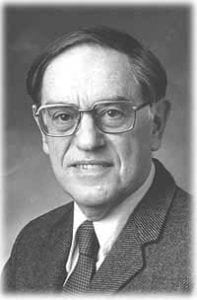 The legendary translator of Japanese literature Donald Keene passed away earlier this year. I asked Ginny Tapley Takemori – translator of, most recently, Convenience Store Woman by Sayaka Murata and The Little House by Kyoko Nakajima – to share some thoughts on his life and career. Here is what she wrote:
The legendary translator of Japanese literature Donald Keene passed away earlier this year. I asked Ginny Tapley Takemori – translator of, most recently, Convenience Store Woman by Sayaka Murata and The Little House by Kyoko Nakajima – to share some thoughts on his life and career. Here is what she wrote:
In February, the world of Japanese literature mourned the loss of one of its foremost scholars, Donald Keene, who passed away at the age of 96. I never had a chance to meet him other than a brief handshake a couple of decades ago after a lecture he gave at Waseda University, but he was certainly a major influence on my studies of Japanese literature. It is impossible to overstate the importance of his contribution to Japanese studies and translation.
He originally studied French and Greek at Columbia University from the young age of sixteen. After graduating in 1942, he enlisted in the US Navy for their intensive Japanese language training, after which he served as an intelligence officer in the Pacific theater for the last years of WW2. After the war ended, he went on to further study the language and literature at Columbia, Harvard, Cambridge, and Kyoto, before taking up his professorship at his alma mater.
He was an extraordinarily prolific author publishing dozens of books in English and Japanese, with an astonishing breadth of scholarship. What student of Japanese literature hasn’t consulted his four-volume history of Japanese literature spanning almost 4,000 pages and covering over a millennium of literature from early classical works all the way up to the modern era? His translations ranged from classical works of poetry and theater by authors such as haiku poet Matsuo Basho and the Bunraku playwright Chikamatsu Monzaemon, to modern day novels by iconic authors like Junichiro Tanizaki, Yasunari Kawabata, and Yukio Mishima, many of whom he became friends with while studying at Kyoto University in the early 1950s. Among my personal favorites are his translations of a number of plays by Kobo Abe.
In 2008 the Japanese government awarded him the Order of Culture for his contributions to Japanese literature, and after the 2011 earthquake-tsunami-nuclear disaster he moved permanently to Japan, taking Japanese citizenship and formally adopting his friend the Shamisen player Saeki Uehara as his son and heir.
With Keene’s passing, it feels like the end of an era. He was surely a man of his time, and like other prominent scholars who helped form the Japanese literary canon in English, such as the late Edward Seidensticker and Howard Hibbett (who passed just one month after Keene), he was perhaps more naturally drawn to male writers. In his Dawn to the West (vol. 3 of his History of Japanese Literature), for example, just a handful of modern Japanese women authors are treated in a separate chapter of their own. This imbalance is something for subsequent generations of scholars and translators to redress. Certainly, though, his deep love of Japan, literature, and humanity in general have left an extraordinary legacy that will be celebrated for many years to come. RIP Sensei.
Ginny Tapley Takemori

